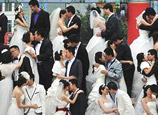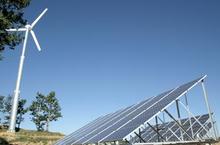
BEIJING, Feb. 27 (Xinhua) -- Several Chinese cities are "technically ready" to join the property tax pilots currently in place in Shanghai and Chongqing after the government signalled it will expand the program to more areas, according to a media report on Wednesday.
Wuhan, Hangzhou and Xiangtan possess the basic prerequisites for the launching of such pilots, including a tax evaluation system, the Economic Information Daily reported.
Earlier this month, the State Council, China's cabinet, pledged to strictly implement and improve tightening measures on the housing market in light of faster-than-expected price rises in some cities.
One of the control directions it named was the expansion of experimental property tax reforms, which analysts said will mainly target some well-prepared cities.
But the Economic Information Daily said the final expansion list is still subject to decisions from the State Council and other related authorities.
As part of China's efforts to cool its property market amid growing growing public complaints over runaway housing prices, China introduced the trial imposition of property taxes in 2010.
The Chongqing trial focused on taxing high-end housing while Shanghai's mainly targeted ownership of multiple houses.
Some experts said that, due to limited scope, the taxes imposed in the two places have not played a significant role in keeping local house prices in check.
But Nie Meisheng, president of the China Real Estate Chamber of Commerce, said the imposition of property taxes, besides being a signal to guide market expectation, should be seen as a long-term tool to regulate the market, according to the Economic Information Daily.
China's home prices have taken off in recent years as the country has rapidly urbanized.
Meanwhile, with other investment channels such as the stock market proving disappointing, houses in major cities like Beijing and Shanghai have become a popular investment choice for the country's wealthy, further squeezing the already tight supplies.
The housing market experienced a brief cooling-off period starting in 2010, when tightening policies such as higher down payments and restrictions on third-home purchases were introduced.
However, the market began to heat up last year, after the central government put more emphasis on economic growth.
Home prices continued to rise at a quicker pace in major Chinese cities in January. Out of a statistical pool of 70 major Chinese cities monitored by the National Bureau of Statistics, 53 saw home prices increase within 2.2 percent month on month in January.
















 Public letter calls for gay marriage legislation
Public letter calls for gay marriage legislation


![]()
